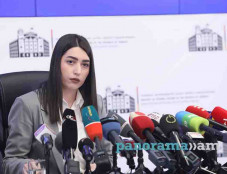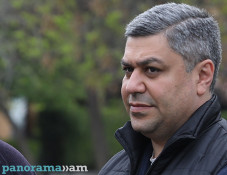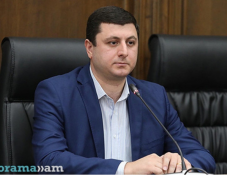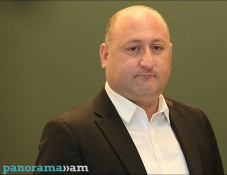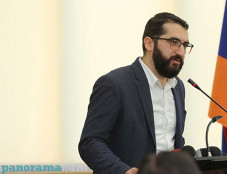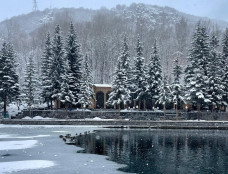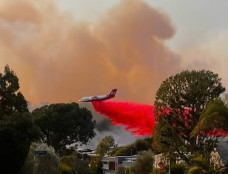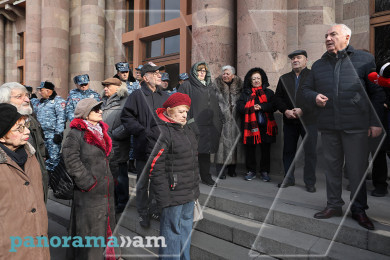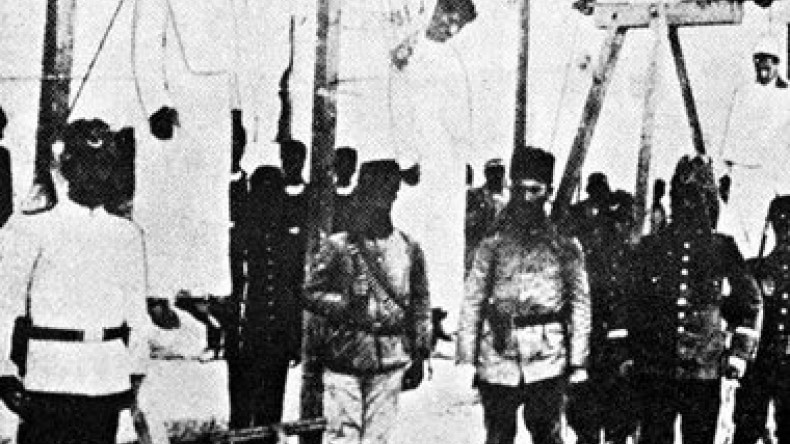
Why is the UK government so afraid to speak of Armenian genocide?
By Giles Fraser
The Guardian
Jesus’s preaching was predominantly directed at his fellow Jews. It was St Paul who later directed this message outwards towards the wider world. Which is why Paul’s birthplace in Tarsus, near the Mediterranean coast in south-eastern Turkey, has always attracted missionaries, looking for inspiration. And it was also why missionaries were among the first to report back on the true extent of the Armenian genocide.
In the early fourth century, the Armenians were the first people to adopt Christianity as their official religion. In 1914 there were 2 million Armenian Christians living in Turkey. By 1922, there were only 400,000 left. What happened to these people has been largely forgotten, or denied, or ignored – except, of course, by the Armenians themselves, who have continued to pass on their horrendous stories of rape, death squads and forced conversions.
There is no doubt what happened was genocide. The Armenians were branded as an enemy within by the Ottoman government, which used the cover of the first world war to systematically dispose of more than 1 million people, forcing great columns of humanity to march off into the Syrian desert to die of heat, starvation and disease. Speaking to his generals some 25 years later, Adolf Hitler said: “I have sent my Death’s Head units to the east with the order to kill without mercy men, women and children of the Polish race or language. Only in such a way will we win the Lebensraum that we need. Who, after all, speaks today of the annihilation of the Armenians?”
The term genocide was coined in the early 1940s by a Polish Jewish lawyer, Raphael Lemkin, as a way to capture in law the extent of Nazi atrocity. “I became interested in genocide because it happened so many times,” he explained in an interview with CBS. “First to the Armenians, then after the Armenians, Hitler took action.” So why is it so difficult for many western governments – ours included, Israel’s included – to use the “g” word when it comes to Armenia?
Barack Obama promised to say the “g” word when he became president. But he deliberately hasn’t. And the UK government has used every manner of evasion – including trying out the preposterous argument that because the term genocide was adopted by the UN in 1948, it couldn’t be applied retrospectively. It withdrew this argument when it was pointed out that this would mean the Holocaust itself wasn’t genocide. Now the official line is one of studied avoidance.
The real answer to our avoidance of the “g” word is less than 30 miles up the road from Tarsus: the massive Incirlik airbase, used by the US air force and the RAF. From here, US and UK forces are easily deployed throughout the Middle East. Speaking in the House of Lords in 1999, Baroness Cox came clean: “Given the importance of our relationships (political, strategic, commercial) with Turkey, and that recognising the genocide would provide no practical benefit to the UK … the current line is the only feasible option.” It is worth noting that the foreign secretary at the time was Robin Cook – and remember his “ethical foreign policy” speech in 1997?
For many governments, the denial of the genocide of the Nazis is itself a crime. Yet when it comes to the Armenians, genocide avoidance (because the evidence is too unequivocal for denial) remains semi-official policy. Little wonder the Armenians find it difficult to move towards closure on this issue.
Back in Tarsus, the home of Christianity’s greatest missionary, the faith Paul once proclaimed has now been eradicated. Some of those who survived the forced march into the desert settled in places such as Aleppo in Syria and Mosul in Iraq, where they built Armenian churches – churches that have once again been reduced to rubble by Bashar al-Assad’s barrel bombs and Islamic State’s murderous caliphate. The very least the British government can do is to acknowledge the extent of their suffering by calling it what it is.
Newsfeed
Videos






